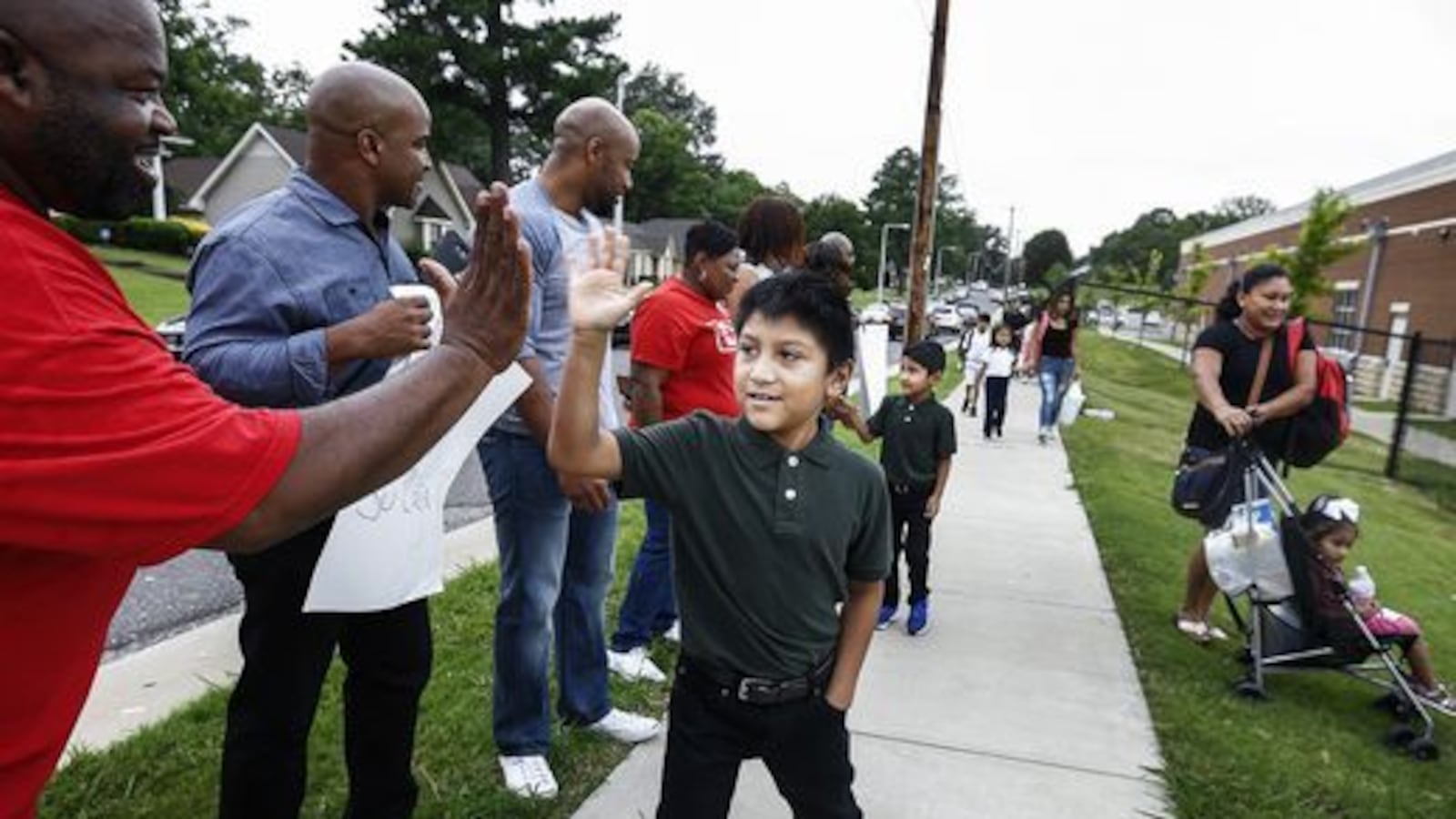Even before President Donald Trump announced plans to draw down protections for the nation’s young undocumented immigrants, fear of deportation has been a problem within Memphis schools.
In session for more than a month, Shelby County Schools has seen a precipitous drop in attendance by students from the city’s growing Hispanic community.
“You can really feel that void,” said Terrence Brittenum, principal at A. Maceo Walker Middle School. “The lack of Hispanic students is impacting us as it relates to attendance, academics and our overall school community.”
That void started over the summer when federal agents raided several Hispanic neighborhoods as part of a crackdown on illegal immigrants. Now it’s expected to grow with Tuesday’s announcement that the Trump administration will end the federal DACA program that stands for Deferred Action for Childhood Arrivals.
Unless Congress steps in, some 800,000 young adults brought to the U.S. illegally as children — and 8,000 in Tennessee — could be eligible for deportation.
“Today is a difficult day for Latinos in Memphis and the Memphis community,” said Mauricio Calvo, executive director of Latino Memphis, in the hours after Trump’s announcement.
Brittenum and Calvo were among school and advocacy leaders who gathered Tuesday night to discuss how to work together in behalf of the city’s Latino community. The meeting, planned for weeks, was fortuitous in its timing. The gathering offered a space for education stakeholders to get their heads around changes to come with the exit of DACA.
The district has declined to say how much its Hispanic enrollment has dropped this school year, but administrators say the decrease is noticeable across many schools.
Principal Tanisha Heaston recalls a question posed by one parent who was considering enrolling her child in Treadwell Elementary School: “How will I know my child will make it home from school?”
“Fear is there,” said Heaston, whose school is home to the city’s only Spanish dual-language immersion program.
The drop in enrollment arrived at a bad time for the mostly black district, which has lost students annually to state-run and suburban school systems that have sprung up across Shelby County in the last five years.
Principals say building trust with the Hispanic community is key to getting students back in their seats. Shelby County Schools has sought to assure families that their students are safe at school, regardless of their immigration status — and that the district doesn’t share private student information with law enforcement agencies. Now, it’s trying to spread the word by partnering with Latino Memphis, an advocacy group that works with Hispanic families.
The seriousness of the problem was underscored by the presence of Superintendent Dorsey Hopson and most of the school board’s members at Tuesday’s gathering at W.H. Brewster Elementary School.

“It breaks my heart that we have families that are literally afraid to show up at school, to participate,” Hopson told the crowd.
Just last week, the school board went on the record in declaring its support of the district’s Hispanic students and families. And immigrant families who showed up on the first day of school on Aug. 7 were welcomed back like rock stars by church and community leaders.
Now the district is talking about training school personnel specifically to work with immigrant families and to provide tools so that they understand their rights. High school counselors also need specialized training on how to help undocumented students figure out their post-DACA options after graduation, leaders say.
Perhaps most important, leaders say, is advocating for federal legislation to replace DACA.
“It’s going to be important to hear from leaders like you that we need this,” Calvo said. “People elected to Congress need to hear what we have to say. It’s not a time to be in the back row.”


